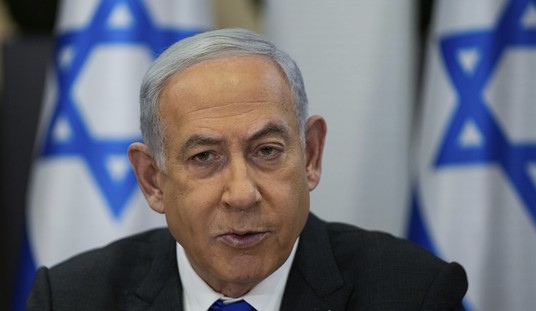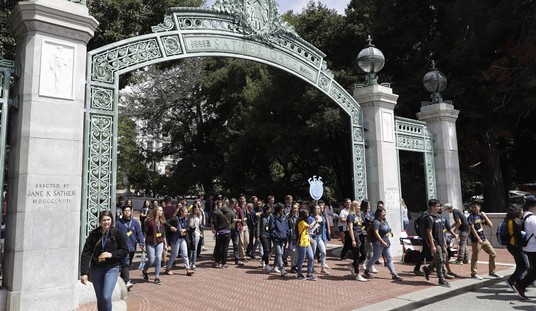Journalist and author Gayle Tzemach Lemmon penned an opinion piece for CNN this week which covers a very important topic. Unfortunately, in an effort to score political points and further the cause of hashtag diplomacy, she allowed it to run off the rails to the point of unintentional comedy on what should have been among the most somber topics. But before getting the point in this tale where things dive entirely off the beam, I’ll share part of her opening which is surely a valid topic of discussion.
“We were shouting for help, but nobody listened,” said Muhammad Iqbal about the slaying of his pregnant 25-year-old wife, Farzana Parveen, at the hands of her relatives, who gathered to kill her in front of a courthouse in Lahore, Pakistan.
More than 20 members of the woman’s family stoned her to death for the “crime” of “dishonoring” her family by choosing to marry someone she loved rather than a husband her family had chosen. A police officer said “one family member made a noose of rough cloth around her neck while her brothers smashed bricks into her skull.”
Social media immediately picked up on the horrific and very public killing. #Farzana became a hashtag that provoked a conversation about the crime of so-called “honor killings” and society’s tolerance and the police’s alleged indifference to it. Suddenly a crime that not long ago would barely have elicited a headline was now a source of conversation and consternation among those on social media both within and outside Pakistan.
Let’s not beat around the bush here. That’s good stuff, right? I mean, this is an important subject and she deals with it factually, including multiple links to credible news sources. She then turns from that horrific killing to the subject of the girls stolen by Boko Haram. Another winner, yes? But then, as if someone else had knocked her over the head with a blunt object and seized control of the keyboard, she makes the following transition:
Reporters and politicians rushed to follow their lead, and discussions about girls’ education and the crimes of Boko Haram at last punctured public indifference.
In America, another horrific crime unleashed a gush of online discourse. This time it was a 22-year-old man on a quest for what he called his “day of retribution,” when he would torture and kill “good-looking people” before launching a “war on women” to punish girls and women who he said had “starved (him) of sex.” The misogyny in the killer’s more than 100-page diatribe led women to begin using the #Yesallwomen hashtag to push forward a conversation on Twitter and Facebook and Tumbler about the rarely discussed though frequently experienced issues of violence against women, from sexual assault to harassment to domestic brutality.
Whoa! Excuse me? What just happened here? If this were an audio podcast on the story, this is the point where I’d be playing the sound effect of the needle suddenly screeching across the record and the music going silent. (Younger readers should read up on the history of a thing called vinyl records to understand that last reference.)
There are so many things wrong with this #YesAllWomen journey that it clouds the senses. First of all, as I noted in the title of this piece, it’s rather remarkable that anyone can spend that much time talking about the very real horror of what are known as honor killings without once mentioning the Muslim religion. As any long time reader will tell you, I’m not one of those writers who spends great amounts of time talking about the flaws of Islam and in fact have been criticized for my lack of attention to it. But when it comes to these “honor killings” it seems essentially impossible to separate them from the religion which gave birth to them. Thankfully they are far more rare in the United States (though still happening) than in many foreign nations, but it always seems to be cases bound up in Islam.
But then, as if to double down on the nonsensical nature of the piece, Lemmon dives straight into the case of Elliot Rodger as if there was some correlation between the cases under discussion. A fundamentally broken, horrible young man who spent some time in some idiotic chat rooms while engaging in his insanity isn’t remotely related to the sinful activities noted in the first few paragraphs. And yet we see the ribbon tied around this fetid sandwich and a call for hashtag activism with the following:
Much could be done if online activism led to real-life campaigning for concrete progress, such as:
— Enacting and enforcing laws to protect girls as young as 8 and 9 from being married against their will
— Providing aid and incentives to keep girls in schools — built near their homes — and to combat traditions that keep them out of the classroom
— Pushing for more stringent laws in the United States and abroad to punish traffickers rather than children
How is this related to UCSB? While we should admit that there are a few unfortunate cases of underage marriage which take place on compounds in the mountain West, we prosecute those cases. The areas where widespread “child bride” crimes take place are almost universally in Muslim nations from what I’ve seen. It’s not a “macho American privileged white male” problem. Keeping girls in school? We probably spend more cash and bend over backward further than anyone else to get girls through school and they now exceed the boys in college. And while there is certainly a problem with the trafficking of young girls in the United States, it pales in comparison to underdeveloped nations and we put the hammer to them when we catch them.
Hashtag activism spent about ten minutes in the headlines as a useful way to raise awareness of underrepresented stories and problems. It’s now becoming a joke with a very poor punchline.







Join the conversation as a VIP Member